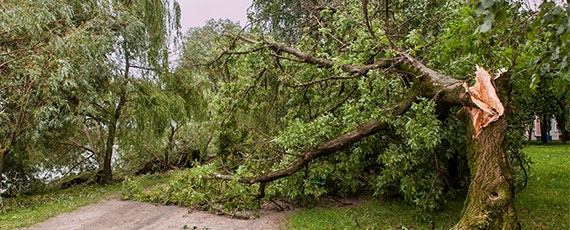Hurricane Coverage and Preparedness Considerations for the Northeast

In the US, hurricane season is most often associated with the Southeast portion of the country. However, the Northeastern part of the US also has significant risk factors due to continuously changing weather patterns that make it just as vulnerable to hurricanes and strong seasonal storms. The National Oceanic and Atmospheric Administration (NOAA) predicts a busy 2020 Atlantic hurricane season with 13 to 19 named storms and three to six major hurricanes. With an above-normal season expected, there are several considerations and proactive measures you can take to ensure you and your family are prepared for a strong storm.
Understanding Your Coverage
A key part of being prepared for potential weather-related property loss is making sure you have the right coverage in place. There are several coverage options and nuances to discuss with your insurance advisor. Consider the following:
- Wind Damage – Severe wind is one of the most common causes of loss related to hurricanes so it’s important to talk to your insurance advisor about insurance coverage for wind damage. Your policy may have a separate deductible in place that applies for windstorm events. If it does, ask:
- What type of wind deductible you have (e.g., is it wind/hail, named storm, or a hurricane deductible)?
- Is the deductible a set dollar amount or a percentage of the home’s value (a percentage deductible is typically a much larger out-of-pocket expense)?
- What criteria activates your deductible if you have a wind-related loss?
Remember that wind deductible guidelines may vary by carrier, state, or even county, which is why it’s helpful to understand how your policy would respond in advance of a loss.
- Flood Insurance – Even if your property is not located in a special hazard flood zone, all homeowners should consider flood insurance. Many incorrectly assume that their home insurance will cover damage caused by flooding. However, a homeowners insurance policy does not include protection for losses related from rising water that may happen as a result of storm surge, sudden downpours and flash flooding, prolonged rainfall, or rapid snowmelt. These perils may be covered by flood insurance.
- Hurricane Protection Program – Check if your insurer offers a hurricane protection program, which is often available in coastal areas that are at the greatest potential risk of impact by hurricanes. These programs have experienced professionals who can visit your home to assess property conditions after a hurricane, begin the claims submission process, and commence short-term repairs in the event you are unable to access or get to your residence following a storm.
- Tree Removal and Landscaping Protection – This protection can be helpful if you have a large number of trees and or extensive landscaping on your property. Learn what your policy contract includes and how the deductible is applied. You may be able to purchase increased coverage limits for an additional premium. Be sure to ask if wind damage is covered as included perils may vary by insurance carrier and state.
- Premium Reductions – If you’re looking for ways to maximize value in your insurance program, ask about increased wind or hurricane deductibles and credits for the installation of a back-up generator or water leak detection system.
- Preparedness Tips to Safeguard Your Property
In the event of an approaching hurricane or strong storm, it is critical to take as many preventative steps as possible to help protect your family, home, and property:- Make sure hurricane protective devices, such as shutters, are secured in advance of an impending storm.
- If your residence has a back-up generator, ensure it is maintained regularly and in working order should you lose power.
- Properly secure all outdoor furniture or any other items that may be at risk of becoming airborne or suffering damage due to strong winds.
- Familiarize yourself with local evacuation routes.
- Gather any essential personal items that should accompany you in the event you are required by local authorities to evacuate.
For a full list of hurricane preparedness resources and tips, visit our Hurricane Resource Center.

